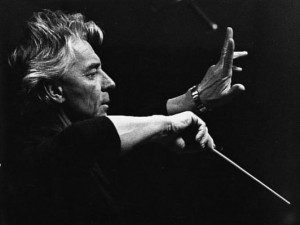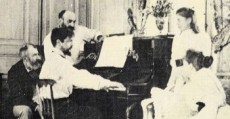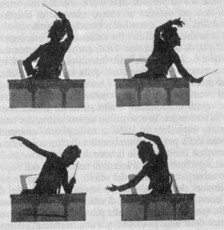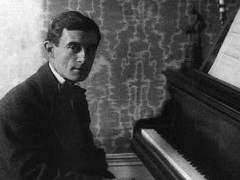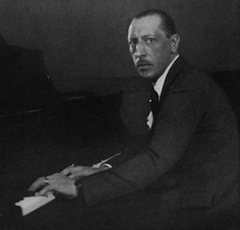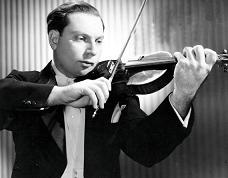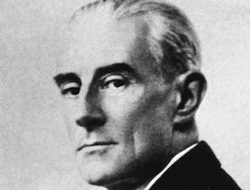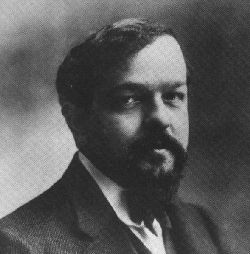So, more about Richard the loyal Tower customer. He once told me that he rated conductors by how he thought they would be in bed. Some of these rating were quite graphic and won’t be shared here, but for any given piece he would have a couple conductors that he thought would get the job done and others that he thought would leave you wanting. Almost always near the top of his list was Herbert von Karajan. And after a few required listenings in the classical room to this work or that work, I began to agree more and more. Karajan certainly had a way to shape phrasing, and certainly knew when to pause for a breath before continuing on… pacing quite often seems to be everything in Karajan recordings. And though he could handle the classical and romantic repertoire just about better then anyone else, I think it is also good that Karajan knew when there was area he couldn’t handle. The number of recordings of his that break into the 20th century avant-garde are few (his recording of Stravinsky’s ‘Rite of Spring’ is good to hear, only because you can really see how much of a problem even a great conductor can have with it). But with the 20th century works that grew out of late romantic works, he could be brilliant. His Debussy is very well done, same with his Sibelius and Richard Strauss. But the recording that I remember Richard suggesting to me above all else was Ravel’s ‘La Valse’. Karajan conducted the Viennese new year’s concerts a number of times, and he certainly knew his was around the Strauss waltzes like few conductors do. But his recording of the Ravel is stunning. And if there is a work that needs Richard’s ‘good in bed’ rating system, ‘La Valse’ is certainly one of them.
But here was the trick – the CD of this recording was, in the 90s, long out of print. It also featured the Orchestre de Paris, and may have been the only recording he did with the group. I was able to find a vinyl recording a couple years later at Amoeba in Berkeley (oh Amoeba, I miss you so). The LP was in good condition, but the recording level was VERY low for the first part of the bass (the rumbling basses). But it wasn’t until about two years ago that I finally found a CD pressing during a trip to Copenhagen. This was one of three CDs or so that I looked for at every used record store I would go into, and after 8 or 9 years, I had finally found it.
It’s so good.
Also on the disc are good recordings of ‘Le Tombeau de Couperin’ and ‘Rapsodie espagnole’, but it is ‘La Valse’ that is the highlight. And it is damn sexy.
Also ripped tonight was lots more Mahler, including a few harder to find Karajan recordings (the 4th and ‘Das Lied von der Erde’). I have way too many recordings of the 9th and ‘Das Lied von der Erde’. But one find in the stack was the Herreweghe recording of ‘Das Lied’ with the Schönberg chamber version. Quite beautiful.


